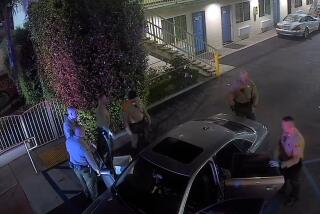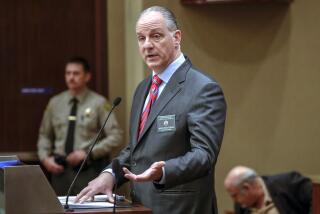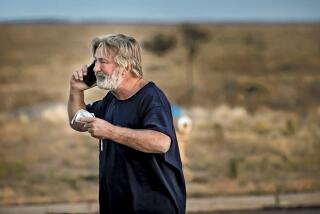Prosecutor retaliated against Fast and Furious whistle-blower
WASHINGTON — The former top federal prosecutor in Arizona retaliated against the lead whistle-blower in the Fast and Furious gun-smuggling scandal by leaking an internal report that suggested the whistle-blower once favored allowing illegal gun sales as a way to track weapons to drug cartels in Mexico, the Justice Department’s inspector general’s office said Monday.
Dennis K. Burke, who resigned from the U.S. attorney’s office following the Fast and Furious matter, told investigators that he leaked an internal memorandum to a television producer in which ATF Special Agent John Dodson discussed an earlier case involving gun trafficking on the border. Burke told investigators that he did not believe he had done anything illegal.
However, he was sharply admonished by his supervisor, the deputy attorney general in Washington. He was prodded to resign over Fast and Furious and left the U.S. attorney’s office in Phoenix in August 2011. Until then he had been seen as a rising Democratic political star.
Under the Fast and Furious program, the federal Bureau of Alcohol, Tobacco, Firearms and Explosives purposely allowed hundreds of guns to be illegally purchased in the hope of tracking them to Mexican cartel leaders. Instead, almost all of the firearms were lost. Two turned up at the site of the slaying of Border Patrol Agent Brian Terry in southern Arizona in December 2010.
Burke could not be reached for comment Monday.
In November, the inspector general’s office issued a report sharply criticizing the ATF for Fast and Furious. The findings Monday were a follow-up to that report and determined that “Burke’s disclosure was likely motivated by a desire to undermine Special Agent’s Dodson’s public criticisms of Operation Fast and Furious.”
The Dodson memo discussed a case he worked on in which he served as an undercover agent posing as an illegal straw purchaser providing firearms to a trafficker, and he discussed the tactic of “walking” firearms as a way to build an investigation. Burke saw the document as evidence that Dodson also condoned “gun walking” investigations, and personally emailed it to a friend in Washington with the intent of sharing it with a Fox News producer.
The inspector general’s report said Burke told both Deputy Atty. Gen. James M. Cole and the inspector general that he had leaked the internal memo. He said he did so thinking it was already in the hands of congressional investigators and would come out eventually. Nevertheless, Burke acknowledged it had been a “mistake” to leak the document.
Burke’s departure came after he also leaked a separate internal memo to the New York Times about the guns recovered at the site of the Terry slaying. Burke admitted he had leaked the memo, which was published on the paper’s website with his fax number on the copy. Cole called the leak “another horrible incident of bad judgment.”
The inspector general referred the Burke matter to the Justice Department’s Office of Professional Responsibility to determine whether Burke’s behavior violated any state bar association rules of conduct. It was unclear whether the office would go further and open a broader investigation.
Before he stepped down, Burke had a promising political future and had built a strong record for being tough on border crime. He was seen as a likely Democratic candidate for governor or senator from Arizona, and he had been a protege of Janet Napolitano, now secretary of the Homeland Security Department, who earlier served as attorney general and governor in Arizona.
More to Read
Start your day right
Sign up for Essential California for news, features and recommendations from the L.A. Times and beyond in your inbox six days a week.
You may occasionally receive promotional content from the Los Angeles Times.







